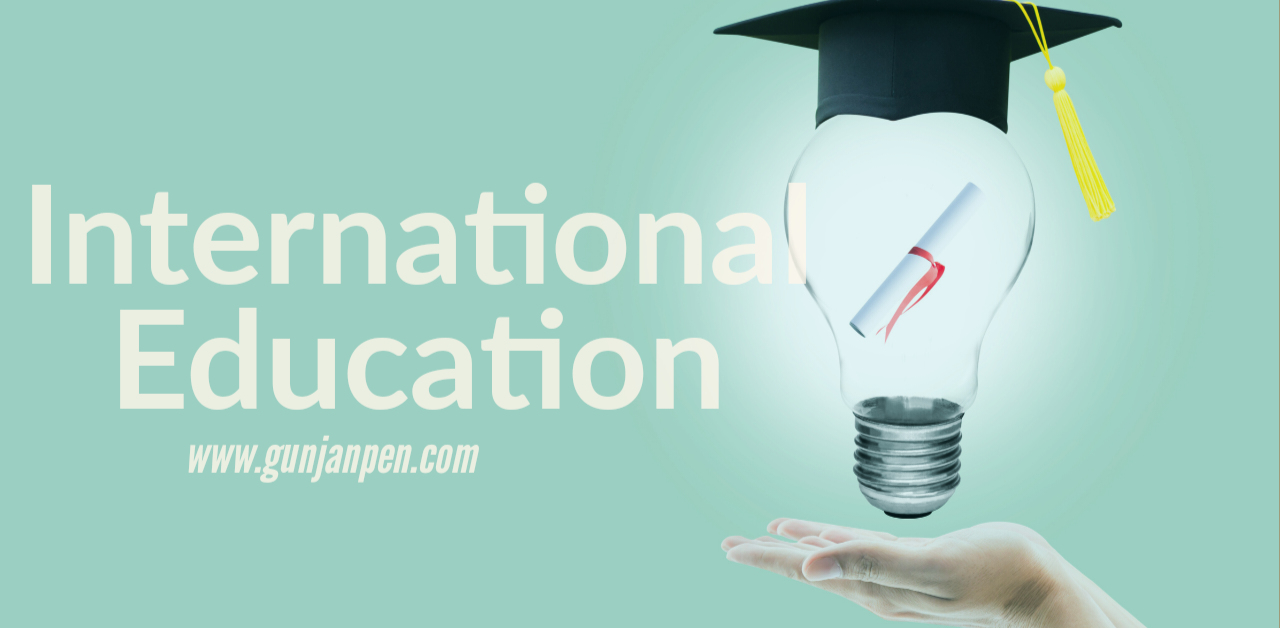Cultivating Global Citizens: The Impact of International Education– In today’s interconnected world, the importance of cultivating global citizens through international education cannot be overstated. As the barriers of distance and culture continue to shrink, fostering a sense of global awareness and understanding among individuals has become essential. International education goes beyond academic learning; it nurtures open-mindedness, empathy, and a deeper appreciation for diverse cultures. In this article, we will explore the profound impact of international education on individuals and society as a whole.
Table of Contents
- Introduction: The Significance of Global Citizenship
- Expanding Horizons: Broadening Cultural Perspectives
- Embracing Diversity: Navigating Multicultural Environments
- Learning Beyond Borders: Gaining Language Proficiency
- Developing Soft Skills: Adaptability and Resilience
- Building a Network: Global Connections and Opportunities
- Enhancing Tolerance: Fostering Global Understanding
- A Broader View: Strengthening Civic Engagement
- Overcoming Challenges: Personal and Academic Growth
- Bridging Gaps: Addressing Global Issues Collaboratively
- The Role of Educational Institutions: Promoting Internationalization
- Parental Perspective: Nurturing Global Citizens from a Young Age
- The Future of Global Citizens: Shaping Tomorrow’s Leaders
- Unlocking Potential: Empowering Individuals and Societies
- Conclusion: Empowered Global Citizens for a Better World
Introduction: The Significance of Global Citizenship
In an era characterized by cross-border communication and international collaboration, being a global citizen holds immense importance. International education serves as a catalyst for developing individuals who are not only well-versed in their fields of study but are also equipped with a heightened sense of responsibility toward the global community.
Expanding Horizons: Broadening Cultural Perspectives
Studying in a foreign country exposes students to a myriad of cultures, traditions, and ways of life. This firsthand experience encourages them to challenge their preconceived notions, broaden their horizons, and develop a more inclusive outlook.

Embracing Diversity: Navigating Multicultural Environments
Interacting with classmates from various cultural backgrounds fosters an environment of inclusivity and understanding. Students learn to appreciate differences and navigate multicultural settings with respect and sensitivity.
Learning Beyond Borders: Gaining Language Proficiency
Being immersed in a foreign language environment accelerates language learning. Proficiency in multiple languages not only enhances communication skills but also opens doors to global career opportunities.
Developing Soft Skills: Adaptability and Resilience
International education hones essential soft skills like adaptability and resilience. Students learn to navigate unfamiliar situations, adapt to new academic systems, and thrive in diverse settings.
Building a Network: Global Connections and Opportunities
Studying abroad creates a network of contacts that spans the globe. These connections can lead to collaborative research, career opportunities, and a deeper understanding of global issues.
Enhancing Tolerance: Fostering Global Understanding
Exposure to different cultures promotes tolerance and reduces stereotypes. Global citizens are more empathetic and equipped to contribute positively to a harmonious world.
A Broader View: Strengthening Civic Engagement
International education instills a sense of civic responsibility that transcends borders. Global citizens are more likely to engage in social and environmental issues on a global scale.
Overcoming Challenges: Personal and Academic Growth
Living in a foreign country challenges students to step out of their comfort zones. This leads to personal growth, self-discovery, and enhanced academic achievements.
Bridging Gaps: Addressing Global Issues Collaboratively
Global challenges, such as climate change and poverty, require collaborative solutions. International education equips individuals with the tools to work together across borders to effect positive change.
The Role of Educational Institutions: Promoting Internationalization
Educational institutions play a pivotal role in promoting international education. They facilitate exchange programs, provide language courses, and create an inclusive environment for global learners.
TCS Xplore: Unleashing the Power of Learning and Growth-2023
Parental Perspective: Nurturing Global Citizens from a Young Age
Parents play a crucial role in nurturing global citizens. Encouraging curiosity about the world, exposing children to diverse experiences, and supporting international education opportunities are essential steps.
The Future of Global Citizens: Shaping Tomorrow’s Leaders
Global citizens are poised to become tomorrow’s leaders. Their holistic understanding of the world positions them to drive innovation, lead with empathy, and address complex global challenges.
Unlocking Potential: Empowering Individuals and Societies
International education empowers individuals to reach their full potential. By equipping them with a global mindset and a strong skill set, societies benefit from well-rounded, socially conscious citizens.
Conclusion: Empowered Global Citizens for a Better World
In conclusion, international education is a transformative journey that goes beyond textbooks and classrooms. It molds individuals into empowered global citizens who are culturally sensitive, linguistically skilled, and ready to contribute positively to a diverse and interconnected world.
FAQs -Cultivating Global Citizens
-
How does studying abroad impact personal growth? Studying abroad challenges individuals to step out of their comfort zones, leading to enhanced personal growth, self-discovery, and adaptability.
-
What role do parents play in fostering global citizenship? Parents play a vital role by nurturing curiosity, exposing children to diverse experiences, and supporting international education opportunities.
-
How does international education contribute to tackling global issues? International education equips individuals with the skills and mindset needed to collaborate across borders and address pressing global challenges.
-
What are the benefits of multilingualism in the context of global citizenship? Multilingualism enhances communication skills, expands cultural understanding, and opens up global career opportunities.
-
How can educational institutions promote a more inclusive learning environment? Educational institutions can promote inclusivity through exchange programs, language courses, and creating a diverse and welcoming campus atmosphere.
EdTech Innovations 2023: Revolutionizing Learning for a Bright Future

